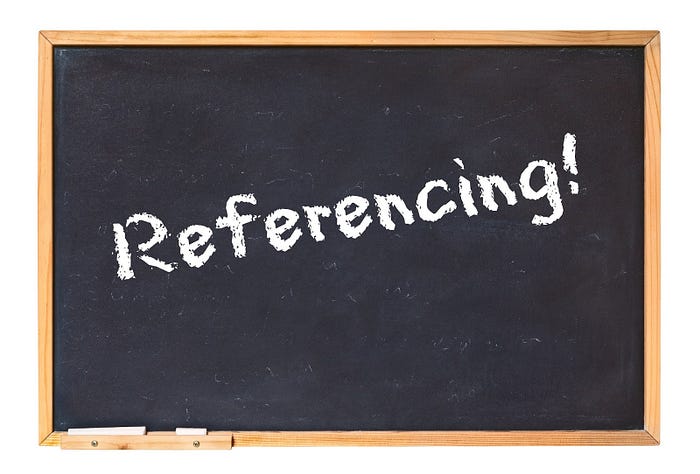Without accurate referencing, an assignment or dissertation is incomplete.
When diving into academic writing or professional projects, one fundamental aspect that often underpins the quality and integrity of your work is referencing. While it may seem like a tedious task, proper referencing plays a crucial role in various aspects of your writing. Here’s why referencing is so important:
1. Establishing Credibility and Authority
Referencing enhances the credibility and authority of your work. By citing reputable sources, you demonstrate that your arguments and conclusions are grounded in well-researched and established knowledge. This not only strengthens your position but also builds trust with your readers, showing that you have done your homework and are informed about the topic.
2. Avoiding Plagiarism
Plagiarism is a serious offense in both academic and professional settings. It involves using someone else’s work or ideas without proper acknowledgment. Proper referencing helps you avoid plagiarism by giving credit to the original authors of the ideas, theories, or research you are using. This is essential for maintaining academic integrity and upholding ethical standards in your writing.
3. Providing Supporting Evidence
References provide supporting evidence for your arguments and claims. They allow readers to verify the sources of your information, which adds weight to your arguments. By linking your ideas to established research, you make a stronger case for your conclusions and contribute to the academic or professional conversation on the topic.
4. Enabling Readers to Follow Your Research
Good referencing allows readers to trace the origins of your information. This is particularly important for those who wish to delve deeper into the topic. By providing clear and accurate references, you enable readers to follow your research trail, explore your sources, and further investigate the subject matter.
5. Enhancing Academic and Professional Reputation
Consistently using proper referencing techniques can enhance your academic and professional reputation. It shows that you respect intellectual property and are committed to producing high-quality, ethical work. Over time, this can establish you as a credible and reliable author or researcher in your field.
6. Facilitating Knowledge Building
Referencing is not just about giving credit; it’s also about contributing to the ongoing dialogue in your field. By citing existing research, you acknowledge the work of others and build on it. This collaborative approach is essential for the advancement of knowledge, as it allows ideas to be tested, refined, and expanded upon.
How to Reference Properly
To make the most of referencing, it’s essential to do it correctly. Here are a few tips:
- Familiarize Yourself with the Required Style: Different disciplines use different referencing styles (e.g., APA, MLA, Chicago). Make sure you know which one is required for your work and follow its guidelines.
- Be Consistent: Consistency is key in referencing. Ensure that you apply the same format throughout your document.
- Double-Check Your Sources: Make sure that your references are accurate and that you have spelled authors’ names and publication details correctly.
- Use Reference Management Tools: Tools like EndNote, Zotero, and Mendeley can help you keep track of your sources and format your references correctly.
Conclusion
Referencing is a vital part of producing credible, ethical, and high-quality work. It enhances your arguments, provides evidence for your claims, and allows others to follow your research. By understanding the importance of referencing and applying it correctly, you not only avoid plagiarism but also contribute to the growth and integrity of knowledge in your field. So next time you embark on a writing project, remember to give referencing the attention it deserves. Your work will be all the better for it!
No comments:
Post a Comment